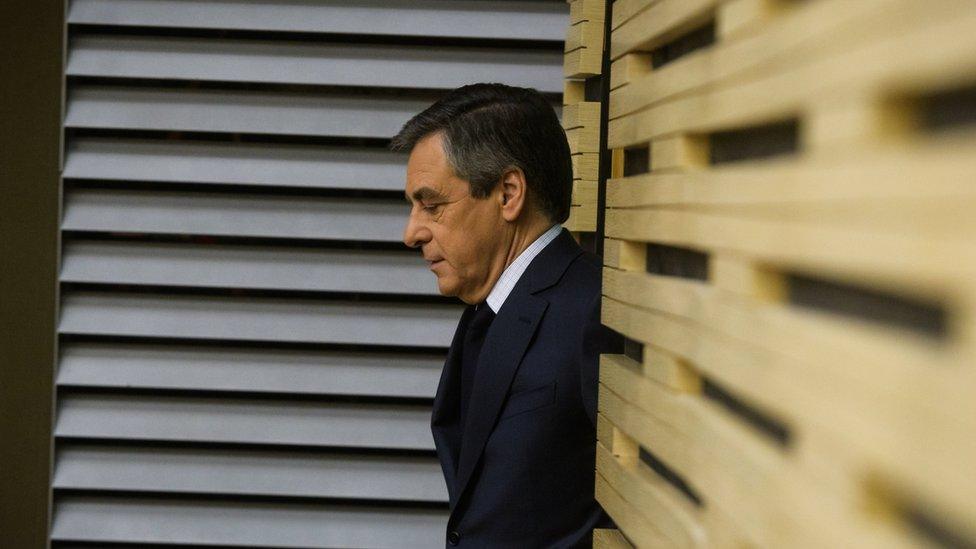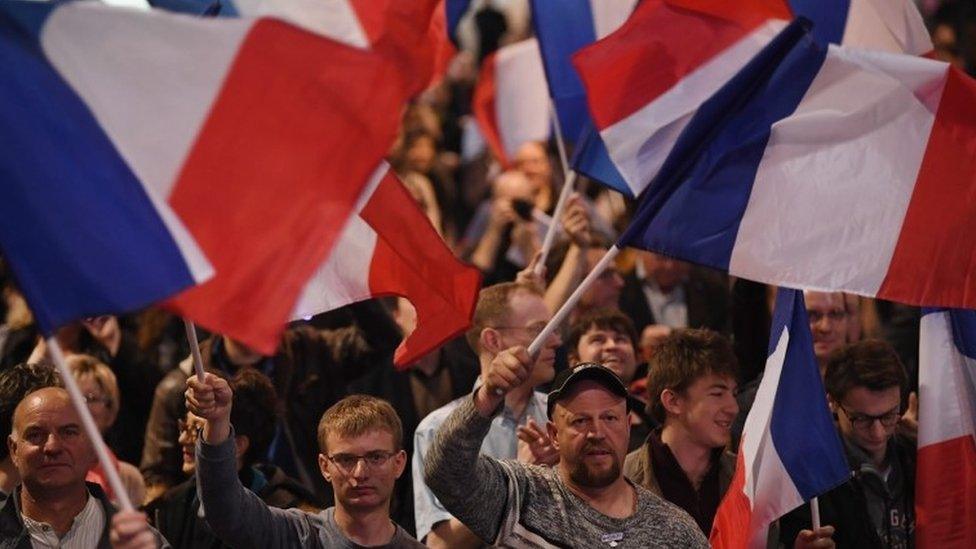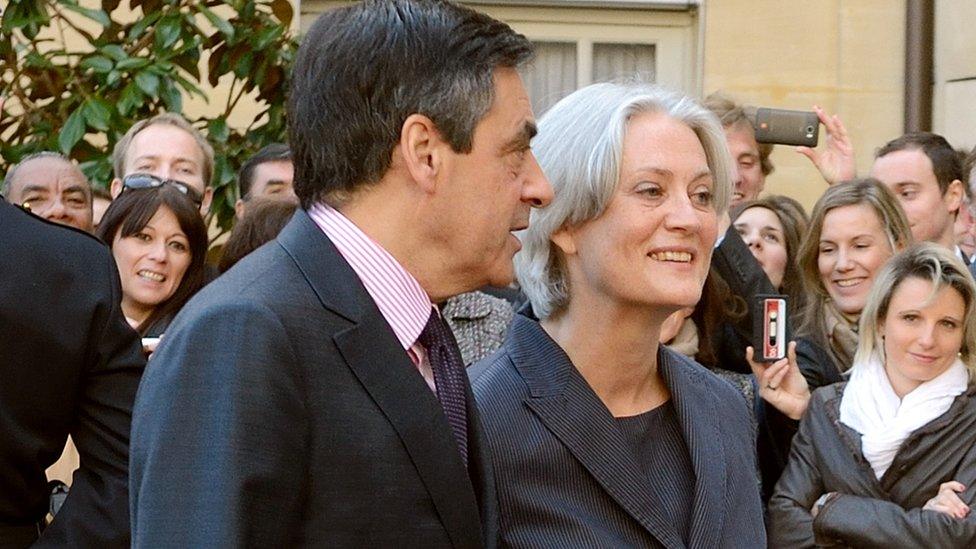French elections: Beleaguered Fillon hit by fresh scandals
- Published

Francois Fillon's campaign has been hit by a series of scandals
Beleaguered French presidential candidate Francois Fillon was put on the defensive again over the weekend following two fresh controversies.
Mr Fillon's party apologised on Saturday for tweeting a caricature of rival Emmanuel Macron that Mr Fillon admitted was anti-Semitic.
And on Sunday it emerged that he had accepted two suits from a friend worth €13,000 (£11,500; $13,900).
France sets a limit of €4,600 that any individual can donate to a candidate.
"A friend gave me suits as a present in February. So what?" Mr Fillon said in an interview with French news daily Les Echos on Sunday.

French election

The caricature of Mr Macron, Mr Fillon's main rival, showed the candidate with a hooked nose, wearing a top hat and carrying a red sickle with which he was cutting a cigar.
Mr Macron is not Jewish but the image appeared to take aim at his past in banking. Critics said it was reminiscent of anti-Semitic Nazi propaganda.
Mr Fillon acknowledged the similarity, saying that the cartoon "evoked the images of a dark period of our history and exploited an ideology that I have always fought against".
And he added on Twitter: "Politics is tough but it must remain dignified. I will not tolerate my party using caricatures that use the themes of anti-Semitic propaganda."
Mr Fillon was at one point the favourite to win the presidency but his campaign has been hit by a series of scandals, including an investigation into allegations that he paid his wife €831,400 (£710,000; $900,000) of public funds for work she didn't do.
He denies any wrongdoing.
- Published3 May 2017

- Published29 March 2017
